
Estradiol test
About Estradiol (E2) test:
Estradiol (E2) is a major female sex hormone produced mainly by the ovaries. It helps in the regulation of estrous and menstrual cycles in females. Moreover, it helps in the development of female secondary sexual characteristics such as breasts.
Estradiol (E2) test is a blood test that measures the amount of the hormone estradiol in blood.
Functions of Estradiol:
Estradiol has several functions in the female body. They include:
· Maturation and maintenance of the reproductive system
· Release of the egg
· Thickening of the uterus for egg implantation
· Distribution of body fat
· Breast development
· Menopause
In males, it helps in modulating the libido, erectile function, and also spermatogenesis.
When is this test indicated?
This test is indicated to understand,
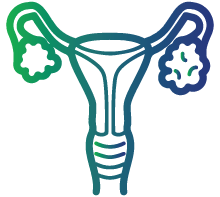
How well your ovaries, placenta, or adrenal gland is working
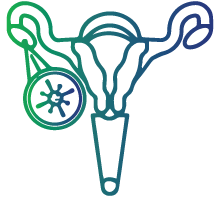
Any signs of ovarian tumour
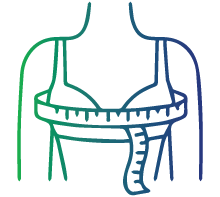
Why secondary sexual characteristics are not developing normally
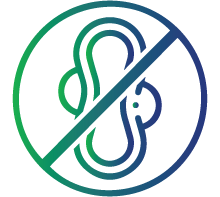
Irregular or no periods
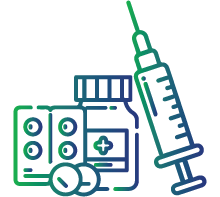
If hormone therapy is working for women in menopause
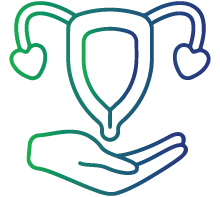
Response to fertility treatment
Who is this test indicated for?
This test is indicated for women who have,
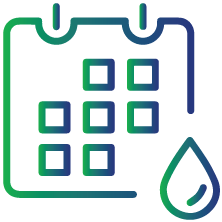
Irregular menstrual periods
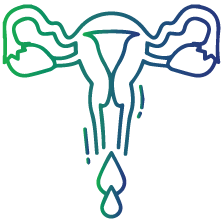
Abnormal vaginal bleeding

Infertility
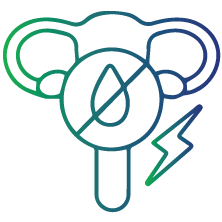
Abruptly stopped menstrual cycle
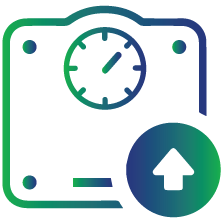
Menopause symptoms such as weight gain
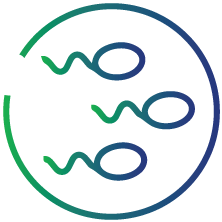
Undergone IVF treatment
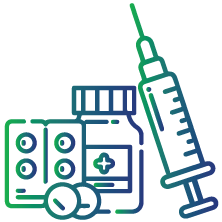
Hormone therapy during menopause
Test preparation:
Estradiol test is a simple blood test that involves the collection of blood from a vein in your arm. You may need to temporarily stop certain medications that may affect the test results. These include birth control pills, antibiotics such as ampicillin or tetracycline, corticosteroids, estrogen, psychiatric medicines such as phenothiazine, and testosterone.
Interpretation of test results
The results usually vary depending on the age and gender of an individual.
|
Specification |
Normal ranges |
|
|
Gender |
Picogram per millilitre (pg/mL) |
Picomole per litre (Pmol/L) |
|
Male |
10-50 |
36.7-183.6 |
|
Female (premenopausal) |
30-400 |
110-1468.4 |
|
Female (post-menopausal) |
0-30 |
0-110 |
Deviations from the normal ranges:
If the test results show any abnormalities in the estrogen levels, it may indicate the following:
· Levels higher than normal may indicate early puberty, tumors in the ovaries or testes, gynecomastia (abnormally large breast in males), hyperthyroidism (decreased thyroid activity), and cirrhosis (liver condition).
· Levels lower than normal may indicate menopause, low body weight, Turner syndrome (a genetic condition), ovarian failure, premature menopause, polycystic ovarian syndrome (PCOS), low estrogen production, hypogonadism (decreased gonad function).
FAQs
What is the turnaround time (TAT) for the estradiol test?
The test results for estradiol are usually available in 1-2 working days after the sample collection. However, it might take a little longer, at times.
Are there any risks associated with estradiol test?
No. There are no potential risks associated with estradiol test. It is a simple blood test and may cause a slight sting or bruise at the site of sample collection. It usually resolves within a few minutes to couple of hours.
Should I be fasting before undergoing estradiol test?
No. You need not fast before undergoing the estradiol test. It is a simple blood test that can be performed at any time of the day. However, please inform your healthcare provider if you are on any medications such as hormonal therapy, birth control pills or psychiatry medicines, etc. which may interfere with the accuracy of test results.
What are the levels of estradiol during pregnancy?
During pregnancy, the estradiol levels increase as it is also produced by the placenta in addition to the ovaries.
The normal levels for the three trimesters of pregnancy are shown in the box below.
|
Pregnancy |
First trimester |
Second trimester |
Third trimester |
|
Units in Pg/mL |
188-2497 |
1278-7192 |
6137-3460 |
I am a 48 years old woman and I have lower-than-normal estradiol levels. I am also having irregular periods. Does it mean I am in the early menopause stage?
Menopause often begins between the ages of 45 and 60. Early indications of menopause include irregular periods and decrease in estradiol levels. Therefore, it may be an indication that you are in the early stages of menopause. Please talk to your healthcare provider about your test results and what they mean.

